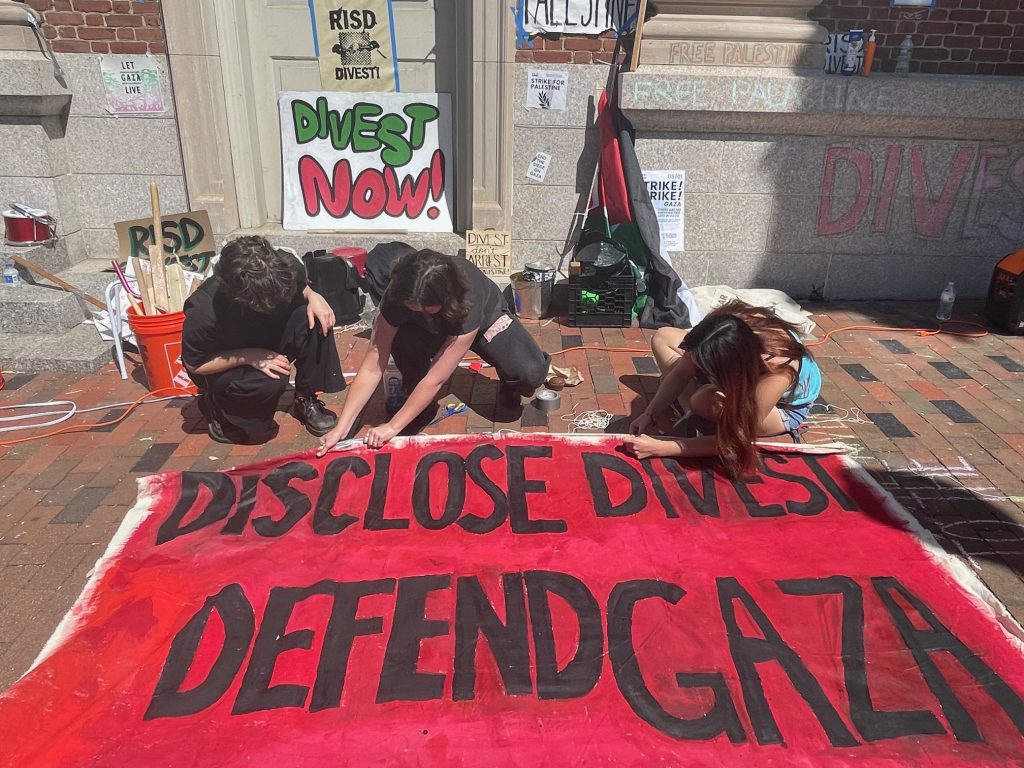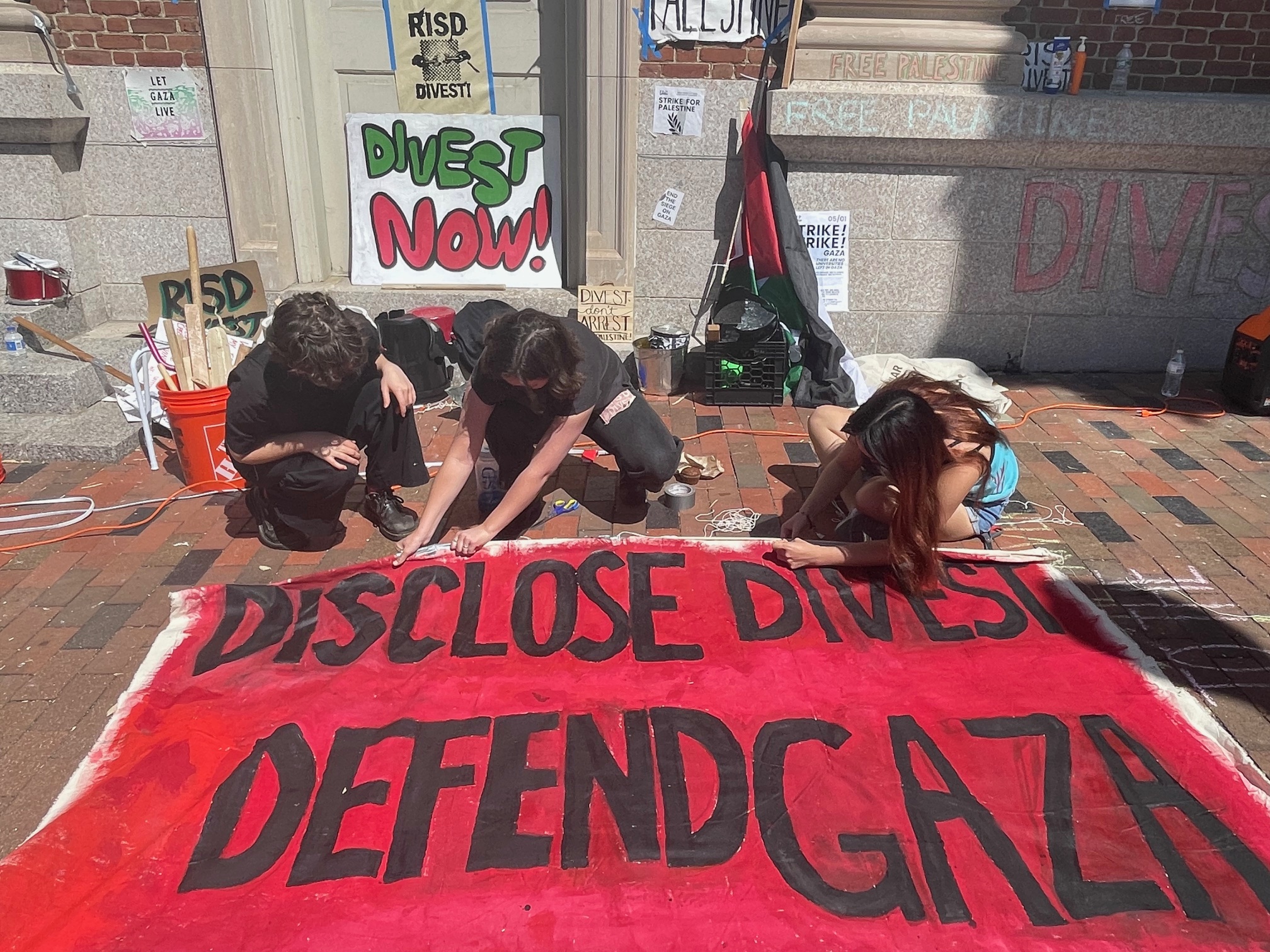
RISD Cancels Student Art Exhibition Supporting Palestine

Title: Controversy at RISD: Pro-Palestinian Exhibition Shut Down Amid Safety and Free Speech Concerns
The Rhode Island School of Design (RISD) finds itself at the center of a heated debate over censorship, student activism, and the complex intersection of art and politics. On March 17, 2024, RISD’s student group, Students for Justice in Palestine (RSJP), alongside Carr Haus—a student-run, publicly accessible café—launched an exhibition entitled To Every Orange Tree. The show spotlighted politically charged artwork by approximately 20 student and alumni artists, exploring themes of anti-imperialism, labor equity, and Palestinian solidarity.
However, just days after its debut, the school administration shut down Carr Haus and forcibly unmounted the exhibition. This decision followed a post by StopAntisemitism, a controversial account known for doxxing individuals associated with pro-Palestinian activism, which disseminated images of the show and urged followers to contact RISD directly.
The School’s Response
According to RISD President Crystal Williams, the exhibition became the “focus of negative public attention,” prompting concerns for campus safety. In response, the school moved the exhibit to the Providence Washington Building (Prov-Wash), a private, ID-access-only location not open to the general public. Williams acknowledged the backlash the exhibition received and stated that the decision was made to uphold both safety protocols and freedom of artistic expression. Critics, however, question the administration’s priorities.
“What frustrates us most is that RISD approved this exhibit months ago,” said Jo, an RSJP spokesperson and contributing artist. “Now, because of outside pressure, they’ve censored our work under the guise of safety.”
Student Concerns over Silencing and Surveillance
While the relocation was justified as a safety measure, students claim that the real issue is censorship. Sadie, a Jewish sophomore and artist whose work appeared in the exhibition, noted that there were no credible safety threats made. She voiced concern about the widespread conflation of anti-Zionism with antisemitism, a distinction that she argues RISD has failed to make.
“It made me really angry,” Sadie told Hyperallergic. “It’s a really common thing to conflate antisemitism with anti-Zionism, which are totally different things.”
Jo and others have also raised alarms about possible surveillance in the new location, suggesting that card swipes used to access Prov-Wash could be used to track students visiting the exhibition.
Artistic Themes and Institutional Involvement
Contrary to the claim that the exhibition incited unrest, many of the artworks did not even mention Israel or Palestine. Instead, they tackled broader anti-imperialist subjects—including wage disparities between RISD custodial staff and university administration, colonialism in Hawaiʻi, and student protests advocating for RISD’s divestment from Israeli military-linked assets.
One particularly noteworthy piece commemorated students’ 2023 occupation of the Providence Washington Building, during which protesters renamed the facility “Fathi Ghaben Place.” The display also included a screen-printed message: “No rest until RISD divests.” In January of this year, RISD notably rejected a proposal for divestment.
Despite RSJP explicitly stating in its January call for submissions that the exhibition would focus on cultural resistance and anti-imperialism, students say there was no institutional pushback at the time. Instead, they assert, the administration’s abrupt reversal came only when the artwork reached a broader audience online.
Community Fallout
The school’s decision to remove the exhibition from public view has elicited strong reactions from students and alumni alike. Jules Kang Sharpe, a recent RISD graduate and participating artist, expressed disappointment in the administration’s actions.
“It’s very disheartening to see a school using their time and resources to silence students, especially over peaceful political expression,” Sharpe said.
The timing of the removal, too, is seen by many as ominously parallel to growing national scrutiny of pro-Palestinian voices. Students and advocacy groups have cited recent federal actions against Palestinian-American figures, such as artist Mahmoud Khalil and Tufts doctoral student Rumeysa Ozturk, who were detained or questioned based on their affiliations.
What’s Next?
The relocated exhibition is scheduled to reopen on April 7, after RISD’s spring break. However, RSJP is urging fellow students to petition for the show’s return to Carr Haus, arguing that moving it behind closed doors strips it of its intent and accessibility.
“This exhibit was for the public,” said Sadie. “It’s an anti-imperialist show meant to engage people outside of RISD. Now it feels like we’re being boxed in—literally and figuratively.”
As RISD attempts to balance free expression with institutional risk management, students remain firm in their call for transparency, consultation, and uncompromised space for protest within the artistic realm.
Conclusion
The RISD exhibition